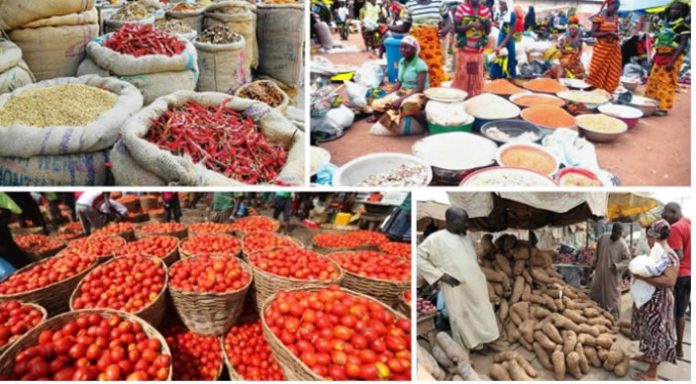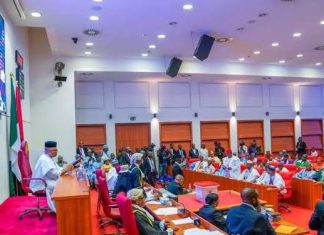

As the Federal Government rolled out fresh measures to address the prevailing food insecurity in the country, agricultural economists have explained why the previous efforts made to address the food crisis have not delivered the expected results.
This came as an investigation by Saturday According showed that in the last five years, the Federal Government has budgeted and pushed about N2.4tn into the agricultural sector in a bid to reduce the country’s dependence on imports for food provisions.
Recall that on July 26, 2023, Vice President Kashim Shettima said that the Federal Government had mobilised more than $500m (N370bn) to boost agricultural production.
Shettima, who disclosed this while chairing a high-level meeting at the United Nations Food Systems summit in Rome, last year, said the $500m was mobilised through domestic resources, multilateral development banks, international financial institutions and climate funds by leading agro-businesses.
Also, while announcing the government’s first set of palliatives a few days later, President Bola Tinubu, in a national broadcast, said the sum of N200bn was also deployed to boost agriculture production.
Most recently, President Tinubu announced the outcomes of the Federal Government review of the accelerated stabilisation and advancement plan, which seeks to inject N2tn into the economy in the next six months.
According to the Minister of Finance and Coordinating Minister of the Economy, Mr Wale Edun, in the N2tn emergency funding, the Federal Government also set aside N500bn for agriculture and food security.
Saturday According gathered that these series of funding were different from the country’s annual budgets for the Federal Ministry of Agriculture which include N362.9bn in 2024, N228.4bn in 2023, N215.87bn in 2022, N280.32bn in 2021 and N160.46bn in 2020.
Meanwhile, the Central Bank of Nigeria also donated fertilisers worth N100bn to farmers across the country.
Despite the litany of funding, an investigation by our correspondent showed that food insecurity persists in the country amid a high rate of inflation and importation.
Speaking to Saturday According, an agric expert, Mr Salau Adebayo, who is the Head, Department of Agric Extension and Management at the Oke Ogun Polytechnic, Saki, Oyo State, blamed the consistent food crisis on wrong deployments of previous loans and funding provided by the Federal Government.
He said, “The government is trying, but what I observe from the economic point of view is that most of the farmers that need the government funds don’t get the money as expected because the government does not have enough data that captures the farmers extensively.
That’s why real farmers don’t get access to the various government funds and loans that can help boost their production. Those who get the funds have simply been diverting it into personal businesses outside agriculture.
“Secondly, if the government will help the farmers, the loans must be of low interest. Meanwhile, most of the funds are often domiciled and channelled through microfinance and commercial banks, whose interests are often too high for the farmers to pay.
“So, the first thing the government can do is to go to the grassroots and get the real farmers and possibly orientate them on the use of the funds before deploying.
“The practice of arbitrarily dishing out funds to farmers at the grassroots through the state and local government representatives without tracking the recipients should be abolished.”
In an interview with Saturday According, another agric expert, Dr Mutiat Salawu, cited inadequate funding as the biggest factor fuelling the food crisis in the country.
Salawu, who lectures at the Department of Agribusiness Management, Federal College of Animal Health and Production Technology, Ibadan, said, “Food crisis in Nigeria remains persistent despite government budgetary allocation to the agricultural sector because the government continued to provide inadequate budgetary allocation to the sector over the years.”
She argued, “Budgetary allocation to agriculture continues to fluctuate ranging from 1.34 per cent in 2020 to about 1.8 per cent in 2022. In 2023, the budgetary allocation to the sector was less than 2 per cent. These allocations are considerably low compared to the 10 per cent allocation specified in the various international agreements.”
Join Television Nigerian Whatsapp Now
Join Television Nigerian Facebook Now
Join Television Nigerian Twitter Now
Join Television Nigerian YouTUbe Now





